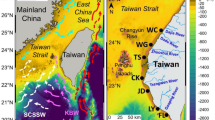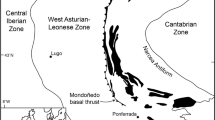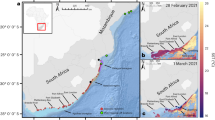Abstract
IN his interesting letter on the occurrence of turtles in British waters, Mr. H. W. Parker1 has suggested that their presence in the English Channel may be an indication of the drift of warm surface water up-Channel. There is another possible explanation. Evidence has not been lacking during recent years that there has been an extension of the distribution of many warm water animals to the far north (see, for example, Stephen2). Recently also the unusual capture of a flying fish, Cypsilurus heterurus, in Oslo Harbour in 1937 has been recorded by A. Wollebaek (see Bruun3); this is the first record of a flying fish at Oslo since 1848.
This is a preview of subscription content, access via your institution
Access options
Subscribe to this journal
Receive 51 print issues and online access
$199.00 per year
only $3.90 per issue
Buy this article
- Purchase on Springer Link
- Instant access to full article PDF
Prices may be subject to local taxes which are calculated during checkout
Similar content being viewed by others
References
Parker, H. W., NATURE, 143, 121 (Jan. 21, 1939).
Stephen, A. C., J. Animal Ecol., 7, 125 (1938).
Bruun, A. Fr., Nytt Mag. Naturv., Oslo, 78, 295 (1938).
Author information
Authors and Affiliations
Rights and permissions
About this article
Cite this article
RUSSELL, F. Turtles in the English Channel. Nature 143, 206–207 (1939). https://doi.org/10.1038/143206c0
Issue Date:
DOI: https://doi.org/10.1038/143206c0
This article is cited by
-
Caretta kempi Garman on Welsh Coast
Nature (1960)
-
The Mexican Loggerhead in Europe
Nature (1939)
-
Terminology in Biology
Nature (1939)
Comments
By submitting a comment you agree to abide by our Terms and Community Guidelines. If you find something abusive or that does not comply with our terms or guidelines please flag it as inappropriate.



